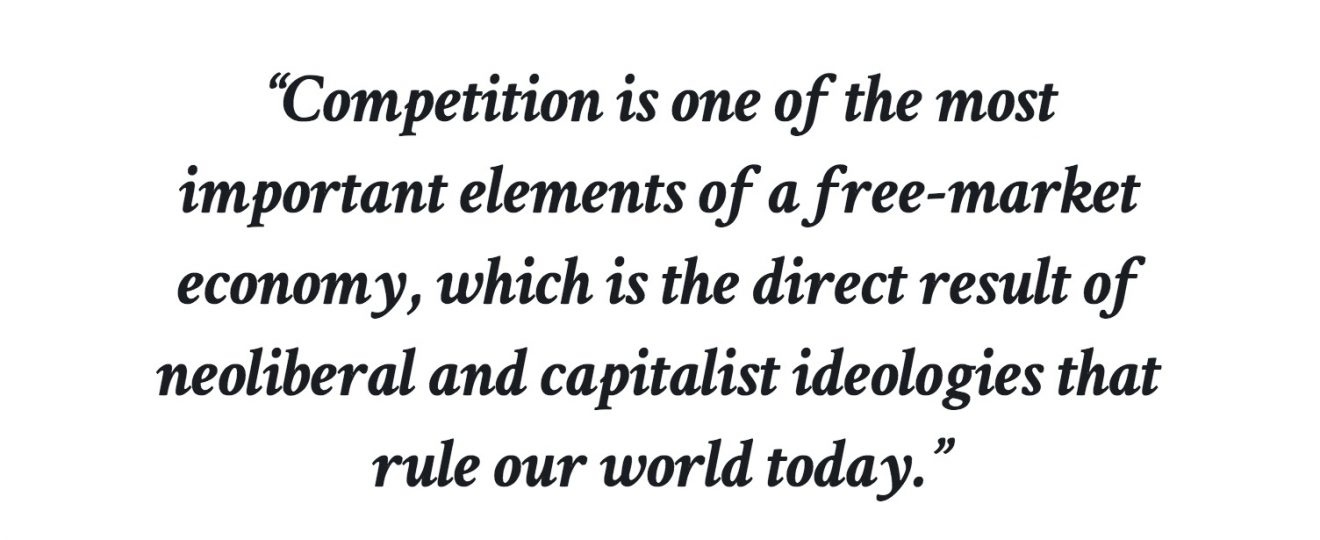In our day and age, it has become rather standard for young people to attend university in pursuit of a degree– almost 40% of young individuals do. While
In fact, stress levels and comorbid conditions such as depression and anxiety have become so prevalent, with up to 82% of students suffering from anxiety and 45% experiencing depression, that they have now become the norm at many universities.
But what drives the prevalence of such negative states amongst students? Many argue that it can be traced back to the lack of coping mechanisms in the face of new and demanding environments. But it seems that the source of the problem lies deeper than it seems.
Job markets have become increasingly saturated and while some market relaxation can be observed, the competition for good positions is fierce. It seems that today, qualifications that would have easily gotten you an excellent position 30 years ago are now merely average amongst a mob of equally or better-qualified competitors. This phenomenon pushes young individuals to involve themselves in a myriad of extracurriculars, internships and otherwise attractive activities in a desperate attempt to get ahead of other individuals, who in this case become resented competitors.

This fierce feeling of competition leads to enormous pressure for students to constantly excel academically, professionally and even socially. Such pressure accompanied by depression and anxiety is the recipe for dysfunctional thought patterns leading to serious behavioural and, in some cases, even physical issues. Especially so, when this state of pressure is prolonged, as seen in students. Generally, sustaining a set of behaviours and feelings eventually leads the brain to process said behaviours as a normal state thus becoming the baseline for all emotional reaction.
Hence, being exposed to constant stress and subsequently, anxiety and depression results in a new reality for the individuals in question– in this case, students.
The need for students to get ahead of competition may well be the key indicator of the source causing student bodies to experience abnormal levels of stress. Competition is one of the most important elements of a free-market economy, which is the direct result of neoliberal and capitalist ideologies that rule our world today. The way these ideological systems function can be broken down very simply into consumers buying product and creating profit.
In this context, all individuals are consumers wanting to buy and consume products. This is an attitude strongly encouraged by the system as it is the means of generating profit. But before one can consume anything, one needs to earn an income and generally the higher an income is, the more one consumes. Hence, the individual optimizes himself as a consumer the higher his income is.
Generally, high incomes are associated with jobs considered to be ‘good’, which in turn are a direct consequence of the type of qualifications you possess, which include degrees and extracurricular activities. Thus, higher academic performance and generally higher levels of qualification, eventually result in a better job, i.e. higher income, which determines the type of consumer you become.
The systematic pressure to become an optimal consumer, i.e. a consumer that generates
Well-paying jobs that are not only in short supply but are almost impossible to get due to copious levels of competition. This is the reason why students push themselves to their limits, to overtake competition, to become an optimal consumer.
While we may not yet be able to impose an alternative to capitalism, we can tackle student stress. Students need to realise that they do not have to comply with what the system nor subsequently with what society has told them to do with their lives. We do not need to be ideal consumers. We do not have to become a means to generate profit. We can choose not to comply.
So next time you are stressing over an essay, ask yourself: are you doing what you love or are you doing it for money? If you’re doing it for money, ask yourself who you are really doing it for.
art by: Allegra Tenenbaum




